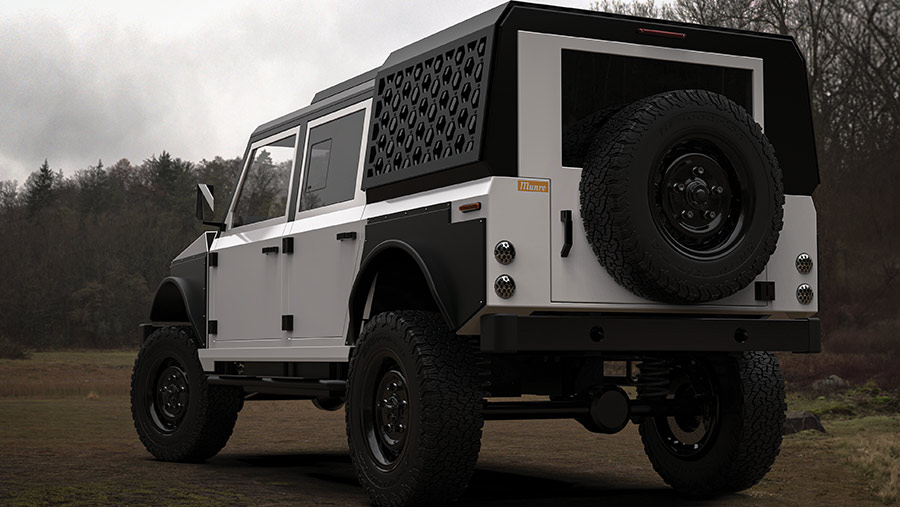Munro launches production-ready Series-M electric 4×4
 © Munro
© Munro Electric off-road vehicle maker Munro has released details of its production-ready Series-M, which will come in both full-body and pickup configurations.
The utilitarian 4×4 features several modifications over the firm’s MK_1 prototype.
These include a slimmer front end for better visibility, an upgraded interior, and a suite of safety systems from air bags and ABS brakes to stability and traction control.
See also: First impressions: Munro’s no-nonsense electric off-roader
Buyers will get the option of two power outputs, with the M170 model delivering 170kW and the high-power M280 a juicy 280kW.
Key stats for the entry-level version include 85kWh of battery capacity, a 200-mile range, 1,050kg payload and 2,250kg towing limit.
Upgrading to the M280 doesn’t give any extra battery power or range, but it does offer livelier performance and a higher towing capacity of 3,500kg.
For added durability, the Glasgow-based maker has also moved to lithium iron phosphate (LFP) batteries.
These have a longer lifespan and support 130kW DC charging, which is capable of replenishing the cells in 30mins.
Interior updates
Inside, engineers have made a few more concessions to modernity, with an adjustable steering column, steering wheel controls and more sophisticated seat adjustment.
It’s been lavished with extra sound-deadening too, making it more comfortable to drive long distances on tarmac.
Plus, it now scavenges waste heat generated by the drivetrain, using it to warm the cabin in winter.
Other updates include higher-grade body panels that are easier to replace if bashed and a rear “exoskeleton” rack for versions with a hard top, onto which cargo and equipment can be mounted.
The trucks don’t come cheap, with prices starting at £75,995 for the M170 and £89,995 for the M280. But Munro claims they are built to last and can easily be upgraded as technology changes.
The firm says it has received more than 250 pre-orders for both the full body and pickup models, with deliveries scheduled to start in mid-2024.
It has a target of progressively ramping up production to 2,500 vehicles per year by 2027.

